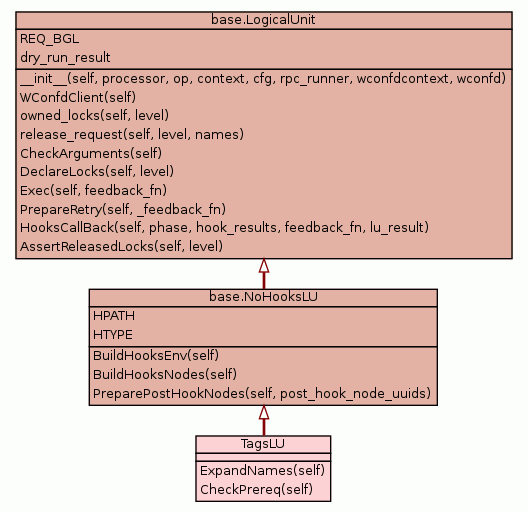|
Expand names for this LU.
This method is called before starting to execute the opcode, and it
should update all the parameters of the opcode to their canonical form
(e.g. a short node name must be fully expanded after this method has
successfully completed). This way locking, hooks, logging, etc. can work
correctly.
LUs which implement this method must also populate the
self.needed_locks member, as a dict with lock levels as keys, and a list
of needed lock names as values. Rules:
-
use an empty dict if you don't need any lock
-
if you don't need any lock at a particular level omit that level
(note that in this case
DeclareLocks won't be called at
all for that level)
-
if you need locks at a level, but you can't calculate it in this
function, initialise that level with an empty list and do further
processing in LogicalUnit.DeclareLocks (see that function's
docstring)
-
don't put anything for the BGL level
-
if you want all locks at a level use locking.ALL_SET as a value
If you need to share locks (rather than acquire them exclusively) at
one level you can modify self.share_locks, setting a true value (usually
1) for that level. By default locks are not shared.
This function can also define a list of tasklets, which then will be
executed in order instead of the usual LU-level CheckPrereq and Exec
functions, if those are not defined by the LU.
Examples:
# Acquire all nodes and one instance
self.needed_locks = {
locking.LEVEL_NODE: locking.ALL_SET,
locking.LEVEL_INSTANCE: ['instance1.example.com'],
}
# Acquire just two nodes
self.needed_locks = {
locking.LEVEL_NODE: ['node1-uuid', 'node2-uuid'],
}
# Acquire no locks
self.needed_locks = {} # No, you can't leave it to the default value None
- Overrides:
base.LogicalUnit.ExpandNames
- (inherited documentation)
| 
